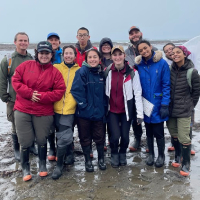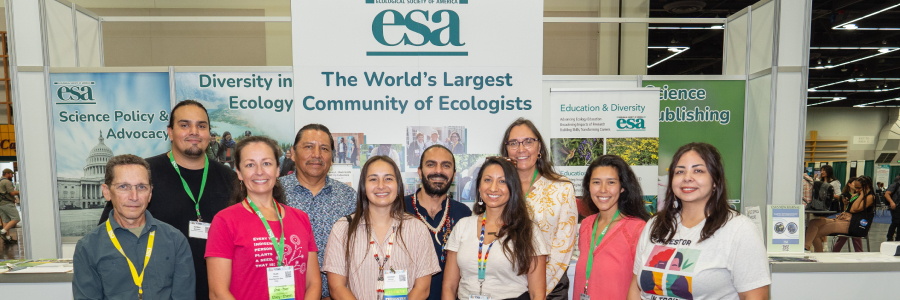The World’s Largest Community of Ecologists

SEEDS students on a 2023 field trip to Port Reyes, Calif.
In 2023, the Ecological Society of America (ESA) continued to thrive as the world’s largest community of ecologists. Our membership base, encompassing individuals from diverse backgrounds and institutions, grew to 8,422 members from 88 countries—a significant increase from 7,848 members in 2022. This growth underscores our commitment to advancing ecological science on a global scale.
The Society is dedicated to fostering a diverse and inclusive environment. Participation by BIPOC ecologists and gender non-conforming members continued to rise in 2023: Since 2019, membership of Asian ecologists has increased by 20%, Hispanic ecologists by 56%, Black ecologists by 58% and Native ecologists by nearly 200%; over the same time, membership of women rose to 44% from 39%, and membership of non-binary ecologists quintupled. Diverse representation is most notable among student and early career members, which bodes well for our continued ability to provide a professional home for all ecologists.
Our members also organized two new sections—Private & Public Sector Ecologists, and Women in (Soil) Ecology—to create welcome homes for ecologists to organize and add their unique perspectives to our governance.
The World’s Largest Gathering of Ecologists
The 2023 Annual Meeting was an unequivocal success, drawing more than 4,100 attendees from across the globe for six days in Portland, Oregon. The event showcased the latest advancements in ecological science through 643 sessions, curated from an impressive 3,661 abstract submissions. This diverse and extensive program provided attendees with a wealth of opportunities to engage with groundbreaking research, participate in stimulating discussions, and forge new collaborations. To make the event more accessible to under-resourced ecologists, we cumulatively (via registration grants and support from the sections and chapters) supported participation for 156 attendees.
A significant contributor to the success of the Annual Meeting was the dedicated support of our incredible staff and 124 student volunteers. Additionally, the meeting was bolstered by the involvement of 70 sponsors and exhibitors, including universities, publishers, instrument companies, nonprofits, and more than 20 of our sections and chapters. Their support and participation added tremendous value and enriched the conference experience for all attendees.

The Traditional Ecological Knowledge Section has played a leading role in developing ESA in recent years; here, members pose at the ESA booth at the 2023 Annual Meeting
Gold Sponsors
Silver Sponsors



